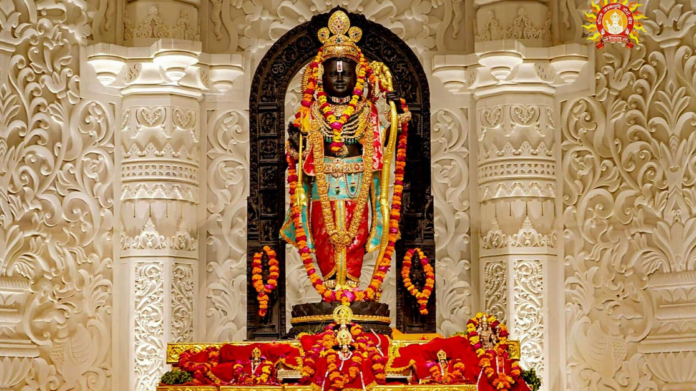In a bid to maintain uniformity and distinctiveness, the Shri Ram Janmabhoomi Teerth Kshetra, which manages Ayodhya’s Ram Temple, has introduced a new dress code for the temple priests. The traditional saffron robes have been replaced with bright yellow attire, including a safa (headgear), chaubandi (full-sleeve kurta), and dhoti.
Assistant priest Santosh Kumar Tiwari elaborated on the change, stating that the new dress code applies to all priests, including the chief priest, four assistant priests, and twenty trainee priests. “Earlier, some priests wore yellow, but it was not mandatory. The new dress code ensures that all priests adhere to the same attire,” Tiwari explained. He also mentioned that the attire aligns with Sanatana Dharma practices, which dictate that priests should wear clothes that are donned head and hands first.
In addition to the dress code, the trust has imposed a ban on smartphones within the garbhagriha (sanctum sanctorum) due to security concerns. The decision follows a recent controversy involving water leakage in the temple. Acharya Saytendra Das, the head priest, had reported water accumulation inside the garbhagriha after the monsoon showers, raising concerns about construction flaws. However, Nripendra Misra, chairperson of the Ram Mandir’s management trust, clarified that the leakage was due to rainwater traveling through pipes intended for electric wires, and assured there were no flaws in the temple’s construction.
Despite these assurances, photos allegedly showing water leakage inside the sanctum sanctorum have surfaced, prompting the trust to reiterate that “not a single drop of water” had entered the area where Lord Ram’s idol is kept.
Furthermore, the trust has redefined the working hours for the priests, introducing five-hour shifts. Each assistant priest will now be supported by five trainee priests, with shifts starting from 3:30 pm and ending at 11:00 pm.



